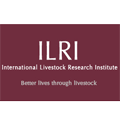 A two-day workshop, 7–8 Sep 2017, on the topic of ‘Improving food safety along the pork value chain—lessons learned and ways forward’, kicked off at the Hanoi Hotel on Thursday morning with an opening address by Chu Van Chuong, deputy director of the international cooperation department of the Vietnam Ministry of Agriculture and Rural Development. In his speech, Chuong said, ‘We look forward to further improvements through projects such as those being reviewed today. In the context of food safety, projects like PigRISK and SafePORK are welcome as they can provide policymakers and the public with scientific evidence that leads to actionable policy options to better manage food safety and provide assurance to producers and consumers alike.’
A two-day workshop, 7–8 Sep 2017, on the topic of ‘Improving food safety along the pork value chain—lessons learned and ways forward’, kicked off at the Hanoi Hotel on Thursday morning with an opening address by Chu Van Chuong, deputy director of the international cooperation department of the Vietnam Ministry of Agriculture and Rural Development. In his speech, Chuong said, ‘We look forward to further improvements through projects such as those being reviewed today. In the context of food safety, projects like PigRISK and SafePORK are welcome as they can provide policymakers and the public with scientific evidence that leads to actionable policy options to better manage food safety and provide assurance to producers and consumers alike.’
The workshop brought together more than 80 key stakeholders from the livestock, animal health and public health sectors of Vietnam—representatives from donor, government and United Nations agencies, from multilateral and non-government organizations, and from civil society, academia and the private sector—to find ways to make sure that pig production, processing and sale of pork is safer.

Pork makes up 75 per cent of all the meat consumed in Vietnam and most of these pork products (83%) are produced by small-scale farmers and are sold in traditional ‘wet’ markets. As pigs can carry high levels of pathogens, ensuring the safety of the country’s pork products is an issue of growing concern among the public and policymakers. Although smallholders involved in pig production are vulnerable to breakdowns in food safety, research through a partnership between the Hanoi University of Public Health (HUPH), the Vietnam National University of Agriculture (VNUA) and the International Livestock Research Institute (ILRI) shows that with appropriate risk management approaches, these systems can efficiently deliver safe pork to Vietnam’s consumers.
The workshop and related projects are funded by the Australian Centre for International Agricultural Research (ACIAR) and co-organized by ILRI, VNUA and HUPH.
The workshop consisted of two parts: (1) the closing (on 7 Sep 2017) of a project on ‘Reducing disease risks and improving food safety in smallholder pig value chains in Vietnam’, known as PigRISK, and (2) the launching (on 8 Sep) of a project on ‘Market-based approaches to improving the safety of pork in Vietnam’, known as SafePORK.
In the morning session of the first day, key research findings were shared by PigRISK scientists regarding pork value chain characteristics, animal health and food safety assessments, and more specifically pork-related hazards and risks and the costs of food-borne diseases in humans. In the afternoon session, the participants discussed actionable policy to better manage food safety along Vietnam’s pig value chains.
On the second day of the workshop, the new SafePORK project—its objectives, approaches and outputs—was introduced. Experts shared their experiences of promising food safety interventions in developing-country contexts and of promising food safety initiatives in Vietnam. Before concluding with the best ways forward, the workshop participants discussed ‘risk communications’—which experts believe have particular potential to strengthen pork safety in Vietnam.
Recommendations from the workshop will be followed up by the SafePORK project team over the next five years (2017–2022).
September 8, 2017 - ILRI



